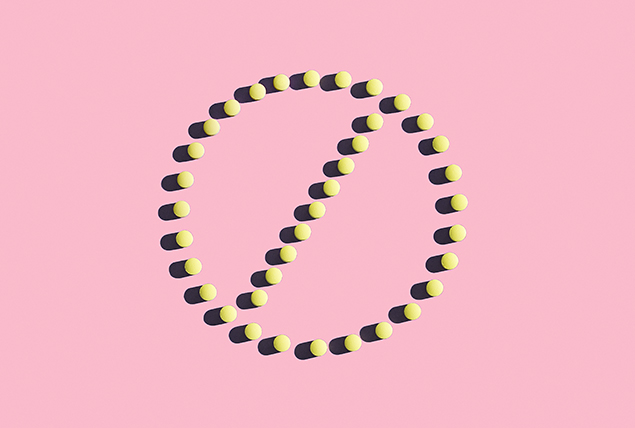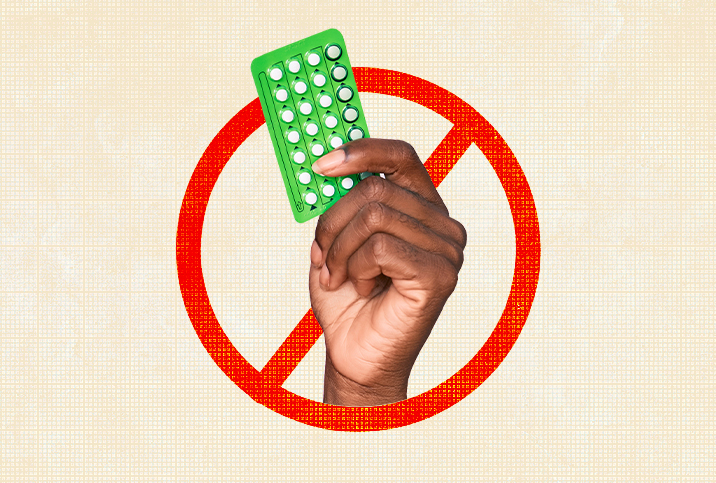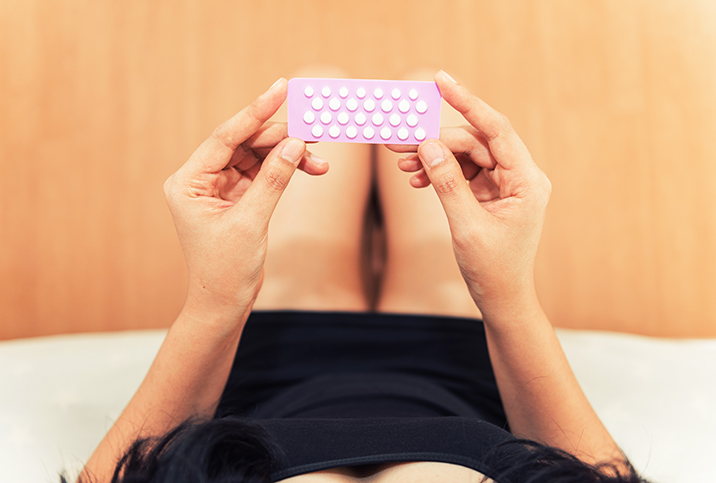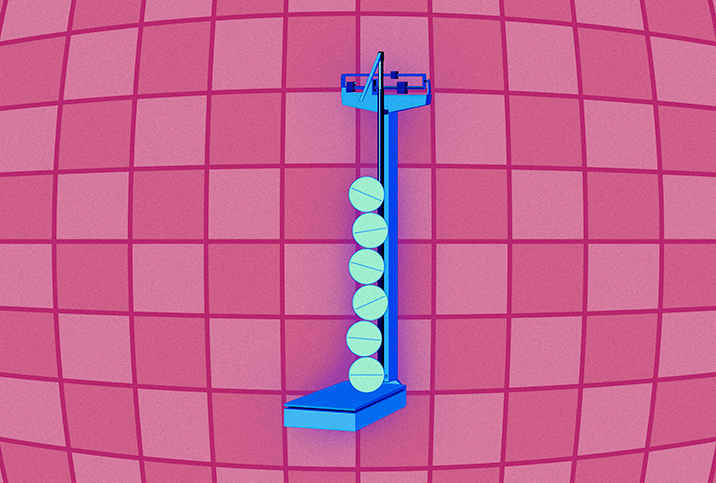What Are Potential Side Effects When You Stop Taking Birth Control?

Key Points
- Hormonal birth control can be stopped for many different reasons.
- Stopping birth control may result in some side effects, but they should be mild and temporary.
- If any side effects are significant or don't go away, see a doctor.
People choose to end their birth control method for many reasons, from trying to get pregnant to swapping the brand or type of contraceptive.
Whatever the reason you decide to stop the pill or your chosen type of birth control, it's helpful to know what changes and side effects you can expect, and for how long.
What is post-birth control syndrome?
TikTok and other social media platforms often mention post-birth control syndrome, or post-pill syndrome, a term meant to categorize the side effects of stopping a hormonal form of birth control.
Hormonal contraceptives include the following:
- Birth control pills
- Implants
- Patches
- Shots
- Intrauterine devices (IUDs)
Although post-birth control syndrome includes complications such as irregular periods, acne and lower libido, medical providers and medical literature do not recognize this term.
While the term is not medically recognized, some women anecdotally report experiencing persistent symptoms such as irregular periods and mood swings for several months after stopping hormonal contraception, said Himali Maniar, M.B.B.S., an OB-GYN at Nisha Women's Hospital & IVF Centre in Ahmedabad, India.
How long do symptoms after ending birth control last?
The symptoms that come with stopping birth control depend on the person.
"It is important to remember that every individual's body is different and may react differently when coming off birth control," Maniar said.
It also depends on the method of birth control being stopped.
"Certain health conditions can make someone more likely to experience side effects when discontinuing hormonal contraception," Maniar said. "So it is important to talk to your doctor about any medical conditions you may have prior to taking or stopping birth control."
For people with polycystic ovary syndrome (PCOS), birth control often helps to balance hormones; stopping it may make PCOS symptoms worse.
If someone were utilizing birth control to help curb painful period symptoms, the symptoms would likely return when someone stops taking it. However, if someone has been on birth control for decades, it's likely their cycle has changed as they've matured.
There are typically no long-term effects associated with discontinuing birth control; side effects usually are immediate and last only a couple of months.
"Some women might notice that their periods are heavier and have clots associated with their menstrual cycle for a month or two," said Kristin Mallon, C.N.M., R.N., a board-certified nurse midwife and the CEO and co-founder of FemGevity Health in New York.
Periods come back within a month for most people after they stop birth control pills. It can take a few months for people who had an IUD to return to their typical period, according to UPMC HealthBeat.
For Depo-Provera users, periods can take a little longer to resume. It could be between nine and 24 months, although most people will experience the return of their period within 12 months, according to University Health Services at Florida State University.
Recommended
- How Do I Know When TikTok Promotes Birth Control Misinformation?: Here's an assortment of contraceptive myths TikTokers are pushing.
- A Short(ish) History of Birth Control:How humans progressed from crocodile poop and weasel testicles to the miracle of the pill.
- Birth Control: Myths & Misconceptions: Don't let misinformation keep you from finding your best method of contraception.
Are there common side effects when you stop taking birth control?
It's normal to experience an adjustment period while your hormones regulate.
"The best way to avoid this is to do your best to stop birth control when you would normally expect to get your period," Mallon said. "If you aren't sure when you would naturally expect to get your period, your best estimate will do in trying to prevent the irregular bleeding that can come with the discontinuation of birth control."
Menstrual changes are a common side effect. Sometimes, people experience heavier bleeding during their cycle. Premenstrual syndrome (PMS) symptoms are typical.
"Additionally, many women experience acne, mood swings and changes in libido while coming off birth control," Maniar said.
Symptoms should subside within two or three months of discontinuing birth control, Maniar said.
Some people may see an increase in sex drive when discontinuing the pill, according to Cleveland Clinic.
Are there any rare side effects when you stop taking birth control?
Contrary to the "post-birth control syndrome" term, there shouldn't be any abnormal symptoms when you stop a birth control method.
If you do happen to notice anything out of the ordinary, it's best to contact your healthcare provider, Maniar said. It is possible to experience breast tenderness, nausea and headaches.
Are there any other considerations when coming off birth control?
To stop your birth control, you can quit taking your pills or schedule an appointment with your doctor before you do to discuss any concerns.
There are no products you need to come off birth control. Disregard advice from influencers who discuss birth control cleanses or how to help prepare for a pregnancy or detox from birth control.
One significant consideration when ending a contraception method is to practice safe sex if you want to prevent pregnancy.
"It is also important to practice safe sex even after discontinuing birth control, as it does not protect against sexually transmitted infections (STIs)," Maniar said.
You can get pregnant as soon as you stop taking birth control. Have a different contraceptive ready to go, such as condoms. If pregnancy is your goal, taking prenatal vitamins can be helpful.
The bottom line
Hormonal birth control is safe and effective, and the side effects of discontinuing it are usually mild and temporary, according to Maniar.
"When discontinuing birth control, it is important to talk to your doctor about any concerns you may have about stopping the medication," she said.
Your body will likely take a few cycles to adjust after you discontinue a birth control method.
If your period hasn't returned within a couple of months after you stop a birth control method, reach out to your doctor, because this could be a sign of an underlying condition.


















